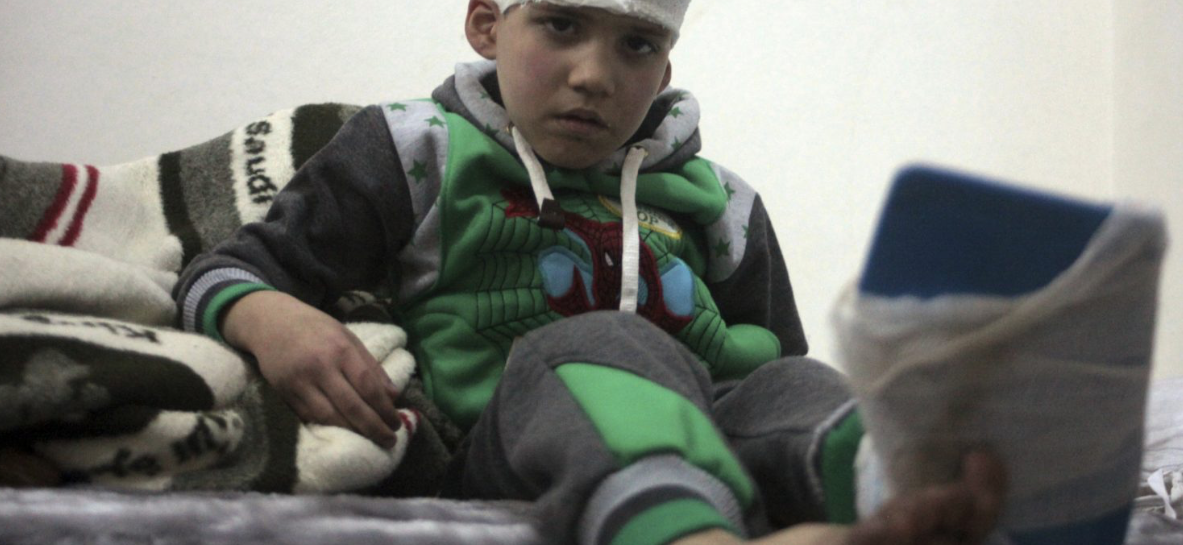We each have our sanctuary at the end of the long work week. Mine is getting home on Fridays early enough to watch the news — the kind that lasts longer than a Sponge Bob episode and gives you a deeper view of the issues confronting our world. For the last several weeks, I have been watching the weekly segments documenting the fall of Eastern Aleppo, the rebel-held city in Northern Syria, and its human aftermath.
To gird the collective conscience, the reports are preceded by the warning that the images may upset the sensitivities of some viewers. Along with the report’s focus — the conspicuous absence of fighting-age men making it out of the city — I couldn’t help but look for the developmentally disabled, my personal constituency. In one report, I caught a glimpse of a child on the back of an elderly man. Most viewers, I am guessing, would have seen the boy as another one of the too-many wounded, but a quick close up of him revealed to me that he could be one of the children I serve and treat in my work as a neuropsychologist every day.
What does one do when, conceptually, one can’t understand the bombs exploding outside? How does one calm and soothe one’s mind when trapped in a basement for untold days?
In another report the following week, I saw a group of severely affected adolescents and young adults led by a tall, gaunt man. To stay together, they held a guiding rope that called to mind the much happier image of little preschoolers being taken to the park by their teachers. In this case, the group was being released from a five-year siege; they squinted as they took in the unfathomable horror and destruction surrounding them.
As the news moved on, my mind remained with those scenes of chaos and confusion. Knowing in the way I know my patients, I wondered how that group of young people made sense of being in the middle of a war. What does one do when, conceptually, one can’t understand the bombs exploding outside? How does one calm and soothe one’s mind when trapped in a basement for untold days?
Unending questions.
What about the famished man leading the young people? Who was he? Was he a father of one of them, a surviving caretaker, or maybe somebody who swore to a dying parent that he would see that their adult child would be cared for until the end?
So often parents raise that very poignant question in my office: Who will care for my child when I am no longer here? Who will love them the way I do? Questions posed toward the end of our clinical meetings, when the unbearable anxiety of keeping it inside trumps the temperance of the trembling parent and the rapidly moving clock. It is then that I tell them, in my best effort to soothe their deepest fear and with my most sincere intent, that society has an obligation toward their aging child, that we all have a duty, that in one way or another, we will be there to contribute in their absence.
The news moves on, but for those in Aleppo, there can be no such transition. Their story of their tragedy continues. I sent the man holding the rope my quiet gratitude, and I held to the frail hope that we in this country, in spite of our differences, will remain engaged and not look away.
Out of the unthinkably debasing political season that we just lived through, nothing was more morally upsetting than the mockery of a person with a disability.
While I silently pledge my support to propagate our principles around the world, I cannot help but look with trepidation at what is to come. Out of the unthinkably debasing political season that we just lived through, nothing was more morally upsetting than the mockery of a person with a disability. For that one act, there are no take backs, no excuses, no “I did not know.” The lucky among us all have voices; we all will, in one way or another, say our piece when the time comes. But not all individuals with disabilities may be able to do so.
Of all the marginalized groups who have been most pointedly targeted in our recent history, the disabled remain largely invisible. Their voices must be represented. Their stories must be told. We must commit ourselves as a society to care about their welfare as our own. Will we do so?
Will we help one another hold the rope?

